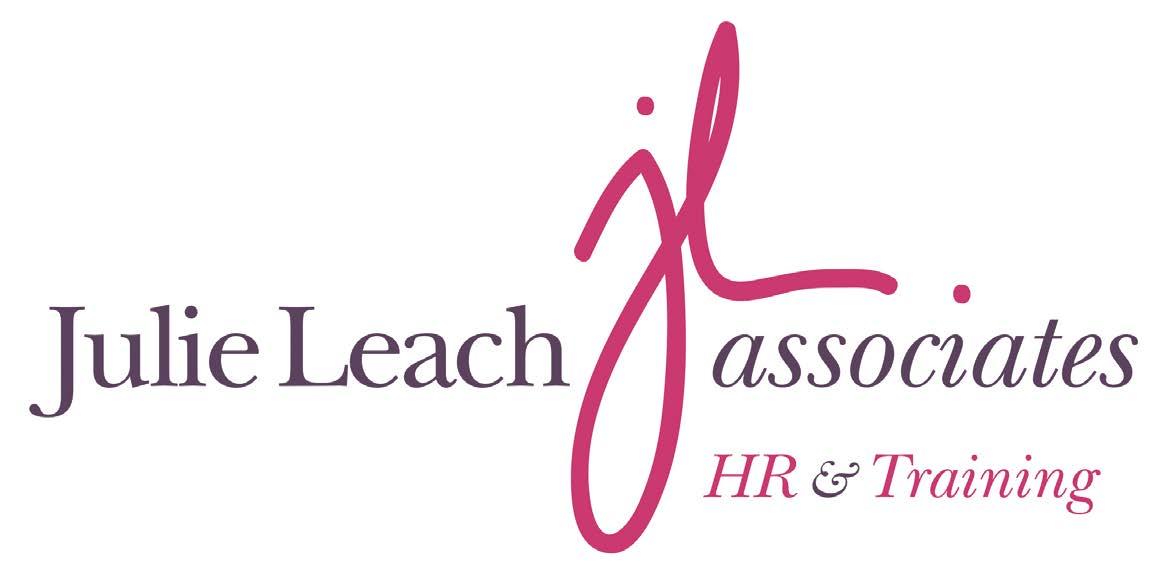
15 minute read
18
Relaunching
LOCAL BUSINESS
As we approach the halfway point of what already seems like a long year, the world is moving cautiously from lockdown to recovery mode. Many businesses have begun trading again after a prolonged period of inactivity, staff are getting back to work and the government has set out plans to gradually reduce its financial support for workers and companies.
The next few months promise to be anything but business as usual. Strict social distancing rules are still in force and, with scientists confirming that COVID-19 is still very much in circulation, many consumers are concerned about returning to shops and offices. The long-term economic impact of the pandemic is, at this stage, difficult to quantify and there are widespread fears that the road to recovery will be a long, arduous one.
However, recent easing of lockdown restrictions in the UK mean that the first, tentative steps forward on this journey can begin. Locally, in Kingston, preparations are underway to ensure that work environments are as safe as possible for staff and customers. Companies have been busy putting in place robust health and safety processes and procedures, and strict social distancing measures, to protect staff, customers and the wider community. They have also been working out ways of promoting their products and services and looking after their cash to protect their business in the COVID recovery phase.
Erin Snyman, financial accountant at Surbiton-based SAIL Business Solutions – a professional services firm specialising in accounting, HR, tax and contractor services – says: “A lot of businesses will be adhering to the old adage “cash is king” in the months ahead. The coronavirus pandemic will have taught them the value of conserving cash in the good times so they have a buffer against the impact of economic downturns or unexpected events.

“If they haven’t already done so, company ownermanagers should develop a comprehensive cashflow management strategy. In challenging times, what are the best, worst and likely-case scenarios for the business? Is it possible for the business to survive in the worst-case scenario and, if so, for how long? Having this knowledge will give them greater visibility and allow them to plan and budget accordingly.”
What about businesses that are already in financial difficulty? The number of companies in significant distress stood at a record 509,000 at the end of the March, according to the latest Red Flag Alert data from insolvency specialist Begbies Traynor Group. That figure is likely to have risen significantly in the second quarter, with many companies mired in lockdown.
Erin says: “Companies that are currently experiencing financial distress could take a few practical measures to help their cashflow, such as negotiating repayment terms and taking advantage of the government’s financial support schemes. The Job Retention Scheme has been extended until the end of October, which will allow some companies to retain staff for longer while paying only a fraction of their salary. Those who are self-employed can access the Self-Employed Income Support Scheme, which has been extended to offer grants of up to £6,570 – ideal for those who have seen work dry up in the last few months. Small business grants and bounce back loans have also been made available, although remember that loans need to be repaid.”
While the government’s financial support package has already helped many businesses, some have fallen through the net. Many that operate under the umbrella of a limited company have been given very limited state support, leaving some facing the prospect of financial ruin.
Erin says: “It’s an unfortunate situation that limited company directors find themselves in. Many take the majority of their income in the form of dividends rather than salary, and some have received dividends from other income sources. It’s therefore more difficult for the government to create a scheme that is fair and manageable.
“However, there are things that limited company directors can do to improve their cashflow position. Under the current rules, they can furlough themselves and claim from the Job Retention Scheme, even if they are the only employee – although they can’t generate any income for the
business while doing so. Alternatively, if they have skills in other areas they may be able to offer secondary services to generate income, such as online yoga or pilates classes.
“Over the coming months, companies of all sizes should review their cashflow regularly. Staying on top of it will allow them to gain a snapshot of the financial performance of the business at a given point in time. This will help them to spot the warning signs before the business falls into trouble.”
While businesses are taking steps to recover from the pandemic, what about individuals who find themselves out of work and facing the worst jobs market for a generation?
On the face of it, the situation is bleak – but help is at hand for those living in the borough of Kingston. Kingston Adult Education (KAE) has secured £100,000 of funding to deliver training and mentoring to unemployed people to give them the skills and confidence to find work.
Sam Burgess, principal of KAE, says: “As an organisation we’ve been around for more than 50 years and our funding has generally been targeted at disadvantaged people. Sadly, the coronavirus pandemic has left a lot of people out of work and created a highly competitive jobs market. It’s therefore vital that people use this time to acquire useful skills that can give them the edge over their peers. Many of our courses have now gone online due to COVID-19 so people can learn in a safe environment.”

KAE courses range from childcare and IT to creative writing, bookkeeping and wellbeing. The latter subject is of particular relevance in the current pandemic, which has dampened the mood of many people. KAE’s community learning team have responded to this by offering free online wellbeing courses and workshops – the perfect antidote to anxiety stemming from these uncertain and stressful times.
The workshops have been specifically adapted to meet the needs of people struggling with the lockdown. One workshop explores how to develop

emotional resilience to cope with changing times; another covers self-care techniques that people can practise at home to improve their mental health and wellbeing. Relaxation, meditation and the ability to improve sleep patterns are also on the mindfulness agenda.
Sam says: “These workshops are designed to help people with anxiety or those with the propensity to suffer from the condition. Anxiety is a major cause of mental health problems, which has serious ramifications for individuals and employers, so we’re doing our bit to tackle this important issue.”
KAE’s mental health learning provision seems to be having the desired effect. A KAE study showed that 60% of learners with clinically significant mild to moderate mental health symptoms had symptoms that were not deemed clinically significant by the end of the course.

“People used to focus more on physical ailments but now much more attention is given to mental health,” says Sam. “From a workplace point of view, poor mental health can lead to a reduction in innovation, efficiency, productivity and profitability. It’s important that managers take time to understand how to deal with staff who exhibit signs of poor mental health – especially in these uncertain times. Although many employees are starting to return to the workplace, some may be fearful of doing so due to the coronavirus. These fears could range from feelings of mild trepidation to the more serious condition of agoraphobia, which could cause problems in terms of staff absenteeism and workplace productivity.”
Businesses and workers will need to be resilient as they embark on the road to recovery. It’s likely they will have to withstand short-term pain – the Organisation for Economic Cooperation and Development (OECD) has warned that the UK economy might shrink by 11.5% this year even without aa second peak of the virus. But there are cautious hopes in Kingston that business will return to some semblance of normality.

Forbes Low, CEO of Kingston Chamber of Commerce, says: “It will undoubtedly take a while for life to get back to normal. In the meantime, it’s vital that businesses do their best to evolve and adapt to the current situation.
“Now is not the time to stay quiet, we have to promote everything positive that Kingston and its businesses have to offer as we move into the COVID recovery phase.
“The Chamber will continue to support our local businesses in every way we can, helping them to build strong connections within the borough and beyond. We all need to show empathy, patience and consideration; these qualities will help bring the confidence back that we will need to move forward.”
For more information visit https://www.sailsolutions.co.uk/, https://
www.kingston.gov.uk/adulteducation and https://www. kingstonchamber.co.uk/
Business Restructuring.
How to help your business survive and thrive.

What is your business bounce back plan? Across our client base we are supporting many to restructure, introduce new ways of working e.g. remote working, revised terms and conditions and / or completely reinvent themselves. Each option brings significant opportunities and risks.
The different options require a specific approach to manage the people implications. Many employees have adapted to temporary changes to their terms and conditions when faced with such uncertainty but it is important to consider the permanent changes that your business needs to be able to survive and thrive, and to implement these properly.
The most painful of decisions for many business owners is to restructure and put roles at risk of redundancy. I think this is often even more sensitive and emotional in smaller companies where the relationships with the owner are sometimes closer and more personal.
Six Top Tips to Restructure your Business:
1) Be clear on your business
rationale for change. Why are you considering making a change and what will the benefit be to the business i.e. is the objective to find cost savings, increase flexibility, attain different skills, improve efficiency?
2) Consider all alternatives to
redundancy? Make sure that you think through the alternatives to achieve the same objectives that would mitigate potential redundancy. Remember that even where you think that there are no other options, employees are not actually redundant until redundancy consultation has been concluded. Implying otherwise puts you at risk of a claim of unfair dismissal.
3) Make sure that you know the steps and timescales required.
The requirements for consultation depend upon the situation and number of employees affected.
4) Approach consultation as a meaningful conversation.
I have been involved in many consultation processes where those affected have identified options that the owner had not considered, finding a different and more beneficial solution.
5) Ensure that the consultation process is documented and retained.
6) Explore what you can do to support impacted
employees. Where redundancies are unavoidable, explore if there is anything that you can do to support them finding alternative work. Provide access to outplacement support if possible to help them with their CVs, interviews etc.
At The HR Dept we believe in partnering with businesses to help them thrive while fulfilling their obligations to their employees.
If you are a business owner and need any help thinking through the options available to you, need support in implementing changes or would like access to employee assistance support please contact Sandra on 0345 208 1290 or email hrhelp@hrdept.co.uk.
We will provide a 10% discount on our services if you are a Kingston Chambers of Commerce member.
Providing State of the Art Software to help your true DIGITAL TRANSFORMATION

www.joanneredington.notjusttravel.com Looking to build new relationships with Kingston businesses

OUR CUSTOMERS • Aerospace & Defence • Medical Engineering • Electronic
Engineering • Construction • Product Design • Manufacturing

PROVIDING SOLUTIONS THAT WORK FOR YOUR BUSINESS
• We are established resellers of Computer
Aided Design (CAD), Product Lifecycyle
Management (PLM), Internet of Things (IoT) & Augmented Reality (AR) dedicated software. • Our products: (Creo, Windchill, ThingWorx,
Vuforia, Arbortext, Mathcad and more) • Find out more about our customers’ success stories on our website
103-105 High Street, Watford, WD17 2DQ Tel 01923 586270 email: info@plmcentral.co.uk www.plmcentral.co.uk
Untitled-1 1 29/05/2020 12:20

Discover Corporate Membership at THE LENSBURY CLUB
All set in our stunning 25 acre gardens and grounds on the banks of the River Thames
Corporate membership pricing
Our corporate membership offers a significant discount on our individual membership prices so take advantage and put your company’s wellness first.


Find out more about our
Corporate Membership on membership@lensbury.com or call 020 8614 6500
The Lensbury Club, Broom Road, Teddington, TW11 9NU
Bringing your employees back to work?


Julie Leach who runs her own HR & Training Consultancy business, answers some key questions regarding this important issue.
Q: What are the important steps that need to be considered when reopening a place of work?
A: There are a number of areas that organisations will need to consider when they start to reopen. These include undertaking risk assessments for the industry they operate in, ensuring that social distancing guidelines are met, that workplace and personal hygiene standards are maintained, managing employee concerns about returning to work and being mindful of their mental health and wellbeing. Offering appropriate support through an EAP (Employee Assistance Programme) is a good option.
Q: Is there anything in particular that managers/leaders should do for their teams?
A: In addition to the points above, communication is key at the moment. It’s important for leaders to be talking frequently to their teams about how everyone is feeling, what their plans are for re-opening, how they are going to manage that safely and what that will mean for people individually. We are very used to referring to people as a ‘team’ but where we are at the moment requires us to focus wholeheartedly on each individual and their requirements. In terms of reopening workplaces, leaders should review and decide which roles are required initially; these may be the businesscritical ones. If it is necessary to bring back a proportion of employees in the same role, ensure any decision as to who is brought back is objective and not discriminatory in any way.
Q: What might be some of the issues businesses face in the next few months?
A: Despite risk assessments being undertaken and shared with employees, some people may just not feel safe returning to work yet. It might be the commute they have which involves public transport, the thought of being in a shared workplace or the fact that they live with someone who is vulnerable. In any of these situations, plus others that may arise, treating these concerns with genuine empathy and care will be important in maintaining positive working relationships. Continuing to utilise the Government’s Job Retention Scheme via furloughing and working from home should be key considerations in addressing any concerns until an employee feels comfortable. Ultimately, you should be looking to work closely with the employee to find a solution that works for both parties. The other issue to be mindful of is where furloughed employees return to work alongside colleagues who have been continuously working for the last few months. Being aware of any tension this might cause and addressing it by frequent and open communication to everyone about what has happened in the business over the last few months and what future plans are, will help. Empathy and honesty will be key.
Q: Can flexible working help a business to reopen?
A: Yes, I think it can. Flexible working can cover a variety of arrangements such as staggered hours when an employee has different start, finish and break times from other workers, reduced hours in the workplace and a continuation of remote working that may have been implemented already. Giving thought to whether these options can help a business and then communicating them to employees may help to reopen a business in a way that works for everyone.
Q: Do you think businesses will see an increase in formal flexible working requests as employees seek to create a better work life balance?
A: Yes, I think they will do. Whilst the current situation is different for everyone, I know several people who will be asking for a more flexible approach to their work as their workplaces reopen having enjoyed more family time and no rush hour commute. This raises a really interesting issue for businesses; should this be the point at which they consider agile working in the truest sense which becomes cultural and the norm for all employees, rather than an ad hoc approach of a handful of people simply working from home a bit more? As with many issues there is a balance to be achieved but whichever way a business decides to go, having it well thought through and supported by the right polices and documentation will be essential.







